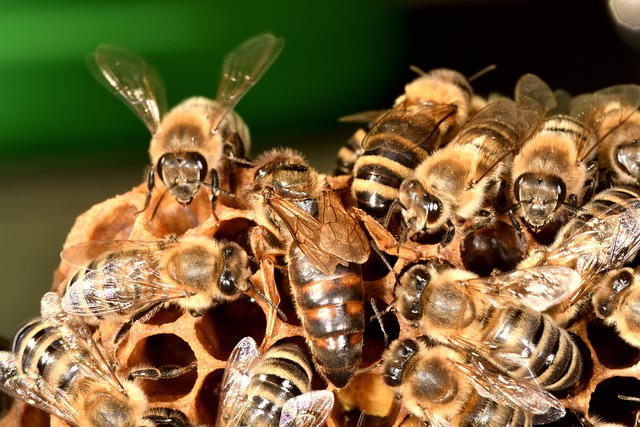It’s World Dictionary Day! So who wants an A to Z of some of our favourite etymologies?
THREAD! https://abs.twimg.com/emoji/v2/... draggable="false" alt="⬇️" title="Pfeil nach unten" aria-label="Emoji: Pfeil nach unten">
https://abs.twimg.com/emoji/v2/... draggable="false" alt="⬇️" title="Pfeil nach unten" aria-label="Emoji: Pfeil nach unten">
THREAD!
AMETHYST stones take their name from the Greek for ‘not drunk’. Ancient Greek folklore claimed drinking alcohol from a vessel made from or containing an amethyst stone would prevent the drinker getting intoxicated.
Because the first ones ever observed by scientists were rod shaped, BACTERIA comes from a Greek root that literally means ‘little stick’.
In the sense of a line or limit that can’t be crossed, a DEADLINE was originally a line drawn or dug into the earth around prisoners on Civil War battlefields. Anyone who stepped across the ‘dead line’ would be shot.
Derived from the Latin for ‘buy’, an EMPTION is a purchase. To PRE-EMPT someone originally meant to buy something before they had the chance to buy it themselves.
FLOCCINAUCINIHILIPILIFICATION is the act of assessing something as worthless. It’s built from a chain of Latin roots, all meant to symbolize worthless things: ‘floccus’ (a wisp or tuft of fabric), ‘naucum’ (a trifling thing), ‘nihilum’ (nothing) and ‘pilus’ (a single hair).
GANDER, meaning a male goose, and the verb GANDER, meaning to look at or cast your eye over something, are the same. The verb was coined because people who ‘gander’ at things often appear to crane their necks like geese.
HUSBAND literally means ‘house-dweller’.
‘Insula’ was a Latin word for an island—and is the origin of INSULATE (which literally means ‘to make into an island’), PENINSULA (which literally means ‘almost an island’), and INSULIN (which is produced by cells called the islets of Langerhans).
‘Jejunus’ meant ‘empty’ in Latin—which is why something that is dull and uninspiring is JEJUNE. It’s also why the second part of the small intestine is called the JEJUNUM, because it’s usually found to be empty when it’s dissected or examined.
KNICKERS is shortened from ‘knickerbockers’, which were so named because they resembled the trousers worn by Dutch ‘Knickerbocker’ settlers in 19th century New York. Their name in turn comes from Diedrich Knickerbocker—a Dutch pseudonym of Sleepy Hollow author Washington Irving.
When we go to the LAND OF NOD, we fall or ‘nod off’ to sleep—but the actual Land of Nod was the biblical realm east of Eden, to which Cain was exiled after he killed his brother Abel.
Words like NUCLEUS and NUCLEAR come from ‘nux’, the Latin word for a nut—a NUCLEUS is literally a ‘little nut’.
PINK was originally a dusky yellow colour (and in that sense might come from ‘pinkeln’, an old German word meaning ‘to urinate’). It only came to mean pale red because of the popularity of pink Dianthus flowers—which are so called because of their perforated or ‘pinked’ petals.
The word QUEEN originally just meant ‘wife’. QUEEN BEES were once wrongly assumed to be male, and so were originally called king bees. The Anglo Saxons got it right, though—the Old English word for a queen bee, ‘beomodor’, literally meant ‘bee-mother’.
If you’re RUTHLESS then you’re literally lacking ‘ruth’—an old word for empathy, or sadness for another person’s troubles. Etymologically, ‘ruth’ is the noun form of the verb ‘rue’.
A SLOGAN was originally a battle cry. It comes from the Gaelic ‘sluagh’, meaning ‘army’, and ‘ghairm’ meaning ‘shout’.
In Greek myth, King Tantalus was punished in the underworld by having food and water drawn away from him every time he reached out to eat or drink. It’s from his name that teasing someone with something unobtainable is known as TANTALIZING.
Because it refers to a third party who acts as an adjudicator or overseer, the word UMPIRE comes from ‘nonper’—an Old French word for an odd number.
A WINDOW is literally a ‘wind eye’. Before we adopted that word from Norse, the Old English word for a window was ‘eagduru’—literally, an ‘eye-door.’
‘Xenos’, meaning ‘foreign’ or ‘strange’ in Greek, is the origin of XENOPHOBIA—but also XENAGOGUE (a tour guide or guidebook), and the chemical element XENON, which was so named because its discoverer, Sir William Ramsay, assumed that it was incredibly rare.

 Read on Twitter
Read on Twitter " title="It’s World Dictionary Day! So who wants an A to Z of some of our favourite etymologies? THREAD! https://abs.twimg.com/emoji/v2/... draggable="false" alt="⬇️" title="Pfeil nach unten" aria-label="Emoji: Pfeil nach unten">" class="img-responsive" style="max-width:100%;"/>
" title="It’s World Dictionary Day! So who wants an A to Z of some of our favourite etymologies? THREAD! https://abs.twimg.com/emoji/v2/... draggable="false" alt="⬇️" title="Pfeil nach unten" aria-label="Emoji: Pfeil nach unten">" class="img-responsive" style="max-width:100%;"/>


















